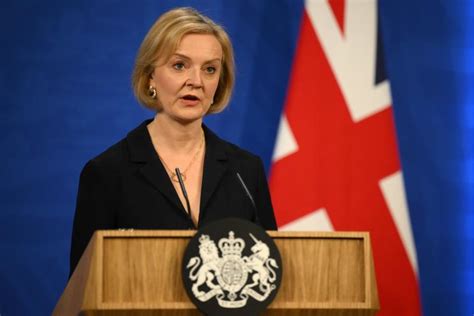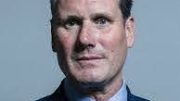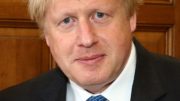The utter and complete mess that has been the start of the Premiership of Liz Truss has created its own neologism to describe the current state of Britain’s governance. That neologism is ‘Trussterfuck’. Sadly it seems all too apt.
When the PM and the then Chancellor of the Exchequer Kwasi Kwarteng announced their ‘fiscal event’ I thought that it had much to commend it and also much that was wrong. As Longrider said in a recent post, the tax cutting was welcome but the increased borrowing that was proposed was ‘insane’. I tend to agree there. It was right to cut taxes as that is how you grow an economy but to also borrow to fund government spending was completely wrong. Is it any wonder that the markets panicked when this plan was announced? Britain needs to borrow from the worldwide financial markets but it must make Britain look like somewhat of a bad bet for loans when the nation is borrowing money that’s probably going to be away up the wall on Britain’s bloated public sector, whilst reducing the tax take. What appears to have happened is that the banks that are being asked to fund Britain are the equivalent of a doorstep lender faced with a person on low income asking for a loan but because the individual will not countenance giving up their full Sky TV package in order to save money, they are likely to be an extremely bad loan bet and therefore get the loan refused. Britain is not in the position to cut taxes and still borrow money to waste on Britain’s bloated, inefficient and often failing public sector.
The Truss/Kwarteng plan might have worked were it not for the fact that it promised tax cuts whilst failing to trim the fat from the public sector coupled with increased borrowing. Maybe if it had promised tax cuts and public spending cuts and some sign that Britain would turn away from borrowing then things might have been different. The outcome might not have been so bad if the nature of the ‘fiscal event’ had been flagged up to the market prior to announcement or if the policy had been properly war gamed to find out where the pitfalls were before it was put into practise. If there had been some idea what the reaction would be to the fiscal event then the reaction to it could have been foreseen and Truss and Kwarteng could have stuck to their guns.
The late and for me much lamented former Prime Minister Baroness Thatcher once said that ‘you can’t buck the market’. This is true. You can’t sell to people who have no money and you can’t ask for loans when the nation and government are profligate with public funds. The market is king here and to cut taxes and to increase borrowing must have looked to those in the finance sector as if Britain was trying to buck the market.
This financial disaster has been a long time coming and has been partially self inflicted by successive British governments. These governments have supported Britain and its often piss poor public services by borrowing via relatively cheap credit and have in addition engaged in the quasi-Weimar policy of increasing the money supply by printing more money than can be justified by the nation’s ability to back that money up with hard goods and services. Not having a sound money policy and an economy based too heavily on services, something we’ve had since the latter part of Tony Blair’s government, has been what has done for Britain’s economy. Whilst there are a lot of people who are blaming Liz Truss for all that has gone wrong we should not forget the many structural economic problems that her government has been bequeathed. Sure Liz Truss and her government must take some blame here but it’s not all her fault. Successive governments of various hues have created the conditions for today’s problems.
We can see how the current problems have evolved but the big question that we should all be asking is how to sort them out? In my opinion the first port of call that must be visited when the adults come back into the fiscal room is to cut the obvious waste in the public sector in order to reduce the burden of the state from ordinary taxpayers. Cut the waste and then Britain might be in a position to cut taxes and get our finances in order. Until we live within our means as a nation things will fail to improve and will probably get worse.






I have never seen such a mess in a life long interest in politics. I am starting to think none of the parties in Westminster will ever be able to provide decent government. Maybe it’s time to give up voting because it is a total waste of time, where is Screaming Lord Such when you need him?
It’s a disgraceful mess isn’t it? I’d say it’s worse than the situation in the seventies as at least then you had some competent people with gravitas and probity on both sides of the parliamentary divide. Now it’s all worthless chancers only interested in what they can get for themselves as far as the eye can see.
I was pleased to see that at last the Tories were looking to bring in a policy of economic growth but that’s been thrown out of the window. Yes I can see that the Truss / Kwarteng fiscal event could have been done both differently and better but to throw almost all the growth related changes out as Hunt has done is insane. A lot of people are going to go through a great deal of hurt because of this. Maybe if Cameron had stayed rather than flouncing after the 2016 Referendum result we might not be in the position we are today and I say that as someone who became increasingly worried about Cameron’s drift to the Left.
Those who the gods would destroy they first make mad, I can’t think of any more fitting comment.